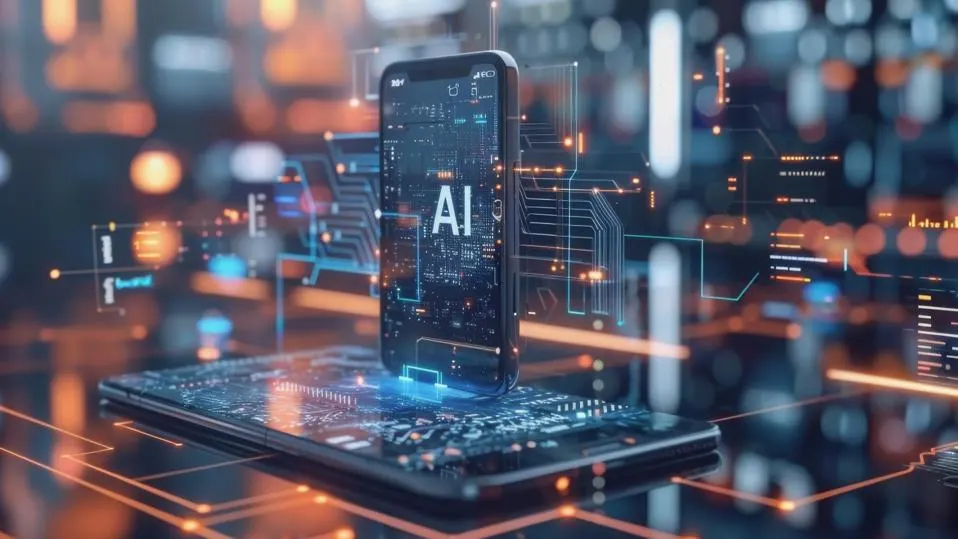The Top Privacy And Security Tech Trends Shaping The Next Decade
13 May 2024
Technology is evolving at a breakneck pace and in 10 years’ time the world will probably be a very different place than it is today.
My job is to look into the future and predict how technology will transform the way we live, work and play. Normally, I focus on what’s just around the corner, as that’s what my clients are preparing for today.
But sometimes, it’s interesting to look a bit further ahead. In this piece, I’ll take a look at how the way we think about and implement security and privacy might have evolved as we hit the halfway point of the next decade.
By this point, the world will be very different thanks to technologies that are emerging today, such as AI, quantum computing and biotechnology. With that in mind, here are what I believe will be the hot topics in this field as we head into the year 2035.

Biosecurity And Neurosecurity
As technologies like gene editing and brain-computer interfacing (BCI) become commonplace, questions emerge about protecting the highly personal data contained in our DNA itself. Within ten years, we could even find ourselves needing to protect our innermost thoughts against entities seeking to hijack them for their own ends. This could be selling our genetic data for unethical research purposes. Or even reading our minds in order to work out how to manipulate and control us (or simply to sell us things). Sounds scary? Well, it’s a danger that everyone is likely to be talking about in the next decade. The new field of neurosecurity will emerge, focused on protecting data that can be gathered from brainwaves and neurological activity from unauthorized access and manipulation. Robust technological, ethical and legal frameworks will need to be developed to ensure this frightening prospect doesn’t become a reality.
Quantum Security
By 2035, quantum computing has evolved to the point that today’s encryption measures, used to protect everything from your bank account to your private communications, may well be obsolete. Corporations and even governments will find themselves pouring huge amounts of resources into the race to develop more and more powerful forms of "quantum-safe" cryptography.
Financial transactions, highly personal healthcare data, confidential government and business information and intellectual property secrets are all potentially vulnerable. This will pose technological challenges, but also global security challenges as information held in encrypted depositories long considered safe become trivial for anyone with a powerful enough computer to access. Overcoming these challenges will require planning, investment, and the development of new frameworks for global data security cooperation.
Globalized Cybersecurity
Today, cybersecurity mainly focuses on protecting businesses and individuals from risks posed by cyber theft and fraud. In 10 years’ time, the priority of cyber defense experts is national security. In recent years, we've seen an increase in state-sanctioned cyber-attacks, targeting business and civil infrastructure with the aim of disrupting economies and sowing fear and uncertainty. By 2035, it’s possible that protecting populations from the impact of cyber-attacks by hostile nations or terrorist organizations is as much of a priority as defending against the threat of physical attack and invasion.
As our reliance on interconnected networks continues to grow, so too does the potential damage that can be done. Critical infrastructure and financial systems will be targeted and disrupted with rising frequency. On a societal level, increasingly sophisticated deepfake technology makes it harder to differentiate fact from fiction, accelerating the spread of propaganda and disinformation and potentially undermining democratic processes as well as trust in national institutions. We may even find ourselves facing the reality of "total cyber warfare," where opposing factions throw everything they have at destroying their enemies’ capability to use technology, leaving populations without access to vital information and services.
Digital Identity And Data Sovereignty
As we spend more and more time inhabiting digital spaces and conducting more of our lives online, the distinction between our physical and digital identities becomes increasingly blurred. By 2035, our digital identity has become an integral part of who we are. The stakes for identity theft are higher than ever, evolving beyond simply having the potential to harm us financially to encompass the theft of our entire digital persona. This is exacerbated by the growing prevalence of deepfake and synthetic media, which will create new challenges for systems designed to authenticate our digital identities. Furthermore, questions around our fundamental right to privacy will be more critical than ever in an era when AI and biometric technologies can trivially link our online behaviors to our real-world identities.
One potential solution to the question of data sovereignty may lie in decentralized technology, where encrypted, distributed systems could give individuals some control over who can access our data or monitor our digital activity. This is likely to spark a broader debate on the delicate balance between privacy and security – an issue that’s likely to be just as hotly debated in 10 years’ time than it is today.
As the technology landscape rapidly evolves, these privacy and security trends not only shape our future but also remind us of the ongoing responsibility to balance innovation with ethical considerations, ensuring that as we step into the next decade, our world remains both connected and secure.
Related Articles
4 Smartphones Leading The AI Revolution
As enterprises increasingly rely on company-issued smartphones as primary computing devices, these mobile devices are becoming the frontline of workplace AI integration.[...]
The Rise Of AI-Enabled Virtual Pets: Why Millions Are Raising Digital Companions
Remember Tamagotchis? Those tiny digital pets that had millions of kids frantically pressing buttons to keep their virtual companions alive in the 1990s?[...]
The Dark Side Of AI: How Deepfakes And Disinformation Are Becoming A Billion-Dollar Business Risk
Every week, I talk to business leaders who believe they're prepared for AI disruption. But when I ask them about their defense strategy against AI-generated deepfakes and disinformation, I'm usually met with blank stares.[...]
Why You Should Be Polite To ChatGPT And Other AIs
In my latest conversation with ChatGPT, I caught myself saying "please" and "thank you." My wife, overhearing this, couldn't help but laugh at my politeness toward a machine.[...]
The 7 Revolutionary Cloud Computing Trends That Will Define Business Success In 2025
Picture this: A world where quantum computing is as accessible as checking your email, where AI automatically optimizes your entire cloud infrastructure, and where edge computing seamlessly melds with cloud services to deliver lightning-fast responses.[...]
AI And The Global Economy: A Double-Edged Sword That Could Trigger Market Meltdowns
The stock market's current AI euphoria, driven by companies like NVIDIA developing powerful processors for machine learning, might mask a more troubling reality.[...]
Sign up to Stay in Touch!
Bernard Marr is a world-renowned futurist, influencer and thought leader in the fields of business and technology, with a passion for using technology for the good of humanity.
He is a best-selling author of over 20 books, writes a regular column for Forbes and advises and coaches many of the world’s best-known organisations.
He has a combined following of 4 million people across his social media channels and newsletters and was ranked by LinkedIn as one of the top 5 business influencers in the world.
Bernard’s latest book is ‘Generative AI in Practice’.










Social Media